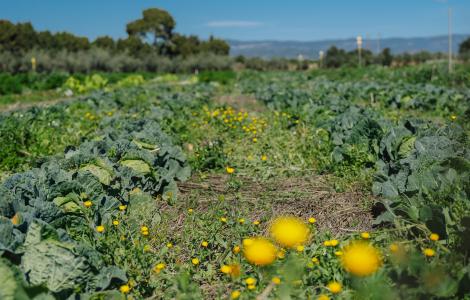The response of leaf unfolding phenology to climate warming has significantly reduced in Central Europe
Leaf unfolding occurred on average about 4 days earlier every one degree increase in spring temperature between 1980 and 1994, whereas this value dropped to -2.3 days C-1 between 1999 and 2013, a decrease of over 40%. According to this study recently published in the jorunal Nature with the participaction of Josep Peñuelas, researcher from CSIC at CREAF, warmer winters and photoperiod are forcing plants to control their phenology calendars.

Earlier spring leaf unfolding is a frequently observed response of plants to climate warming. Many deciduous tree species require cold temperatures, in other words ‘chilling’, for dormancy release, and the warming-related reductions in chilling may counteract the advance of leaf unfolding in response to warming. Empirical evidence for this, however, is restricted to saplings or twigs in manipulative experiments, and evidence from observation is nature is limited.
To check whether warm winters have already attenuated the advance in spring phenology, an international team of researchers from Spain, China, Belgium, France, Switzerland and Germany investigated the change in the sensitivity of leaf unfolding to climate warming using long-term observations for seven dominant European tree species at 1245 sites in Central Europe.
The study provides first Europe-wide empirical evidence for a declining sensitivity of spring phenology to warming.
Their analyzes show that leaf unfolding occurred on average about 4 days earlier every one degree increase in spring temperature between 1980 and 1994, whereas this value dropped to -2.3 days C-1 between 1999 and 2013, a decrease of over 40%. "This lower sensitivity of trees to climate change likely reflects the reduced cold during winter that delays dormancy release. However we could not fully exclude photoperiod and/or insolation as co-controlling mechanisms. These two factors may also become limiting when leaf unfolding dates occur too early in spring", said Josep Peñuelas.
In addition, the predicted strong winter warming in the future may result in a slowdown in the advance of tree spring phenology. According to Josep Peñuelas, ‘the declining temperature sensitivity of leaf unfolding may be beneficial for the trees to reduce the risk of late spring frost damage, since extreme climatic events are projected to increase in future’.
Article:
Yongshuo H. Fu, Hongfang Zhao, Shilong Piao, Marc Peaucelle, Shushi Peng, Guiyun Zhou, Philippe Ciais, Mengtian Huang, Annette Menzel, Josep Penuelas, Yang Song, Yann Vitasse, Zhenzhong Zeng & Ivan A. Janssens. Declining global warming effects on the phenology of spring leaf unfolding doi:10.1038/nature15402






